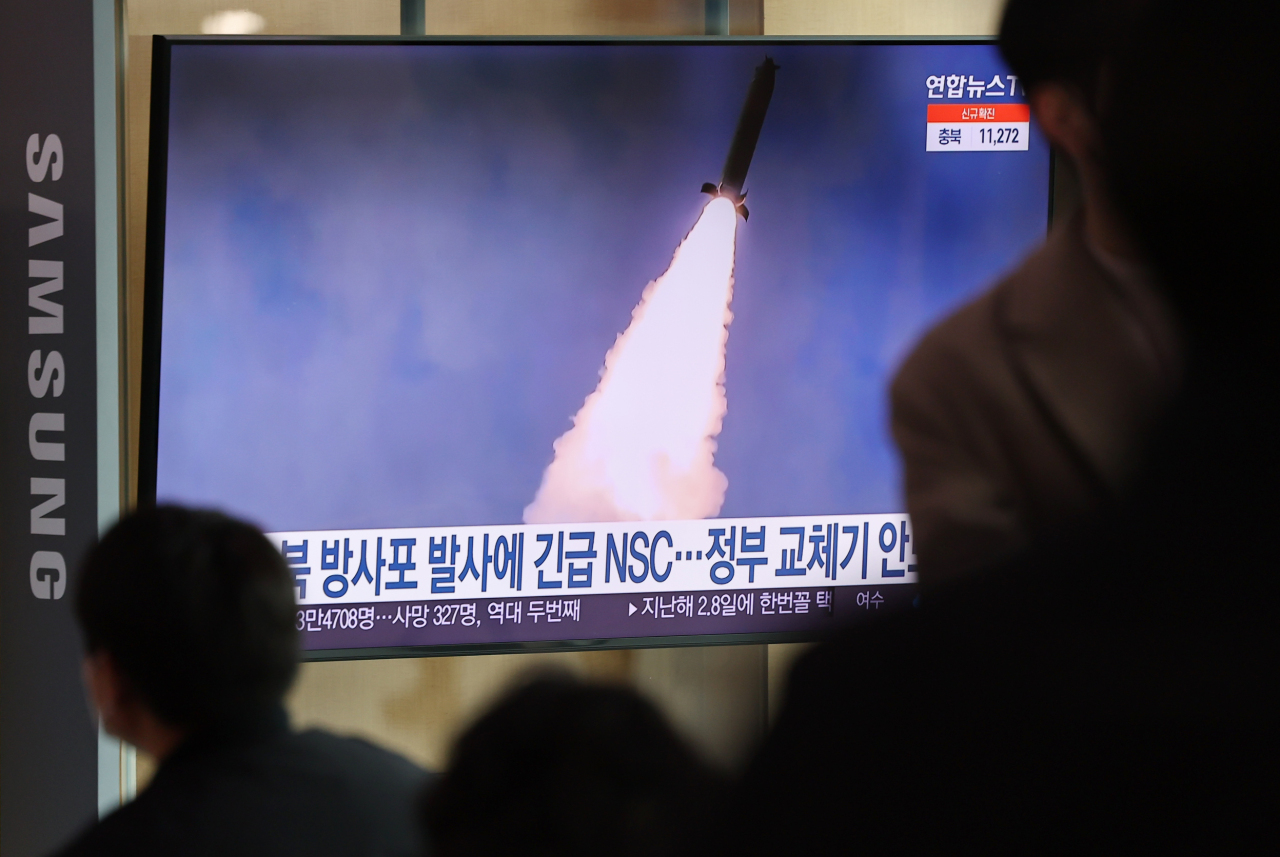
North Korea stayed mum Monday regarding artillery shots fired the previous day, which were seen as part of an ongoing wintertime military exercise.
The North fired suspected artillery pieces into the West Sea from an unspecified location in South Pyongan Province on Sunday, likely from multiple rocket launch systems, according to South Korea’s military.
The North’s state media outlets, including the Korean Central News Agency and Rodong Sinmun, have not reported on the firing.
The regime typically reports on major weapons launches the day after they occur, if presumed successful.
The artillery firing could be part of the North’s annual winter military drill, which often continues into early spring, observers say. In previous years, Pyongyang has conducted artillery and submarine drills as part of the exercises.
Last week, state media also stayed quiet about a failed missile launch that is believed to have involved parts of the Hwasong 17, the North’s biggest intercontinental ballistic missile that is under development.
North Korea has been pressing ahead with developing its arsenal and missile capabilities, launching 10 weapons tests this year alone, including missiles on Feb. 27 and March 5 that were to test a new ICBM system, according to Seoul and Washington.
In response to the North firing artillery, the Unification Ministry, which handles inter-Korean affairs, on Monday urged the North to stop “unilateral action” that raises tension on the peninsula and called for the regime to return to the path of dialogue and cooperation.
The ministry will continue efforts for the stable management of the peninsula by cooperating with related countries, while thoroughly preparing to respond to “all possibilities,” according to the ministry’s spokesperson Lee Jong-joo.



















![[Today’s K-pop] Treasure to publish magazine for debut anniversary](http://res.heraldm.com/phpwas/restmb_idxmake.php?idx=642&simg=/content/image/2024/07/26/20240726050551_0.jpg&u=)